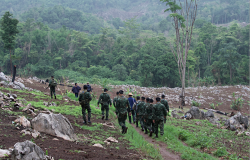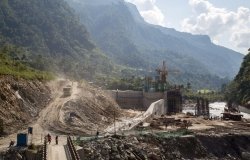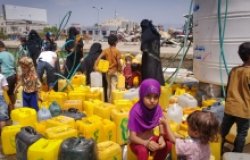U.S. Trade Policy Critical to National Security, International Development, Says Wilson Center Senior Scholar
FEBRUARY 2008—William Krist Discusses Politics, Economics of Trade on dialogue
International trade—particularly of agricultural commodities—is closely tied to security and international development, said Wilson Center Senior Scholar William Krist in a recent dialogue interview. One of the primary motivations behind the November 2001 launch of the ongoing Doha Round of World Trade Organization (WTO) talks was the U.S. government's realization that "it's in the U.S. interest to help countries develop—both national security interest and also in our own economic interest in the long term," said Krist.
The case of cotton illustrates the far-reaching effects of U.S. agricultural policy. In recent years, government subsidies have lowered the price of U.S. exported cotton to 60 percent below the cost of production. According to Krist, this artificially low price is "a terrible disadvantage" for poor countries like Benin, Burkina Faso, Chad, and Mali, where cotton exports constitute 50 percent or more of total exports and a "huge percentage of their population is dependent on growing cotton." U.S. agricultural subsidies have "a significant developmental impact," he asserted. "Some people argue that that nullifies U.S. foreign aid to those countries."
The U.S. House of Representatives and the Senate passed Farm Bills in July 2007 and February 2008, respectively. The two bills would both increase overall agricultural subsidies if now-high crop prices fell. The next step is for a conference committee to reconcile the two versions into a final bill that will set U.S. agricultural policy for the next five years. The challenge, said Krist, is "crafting a bill that supports the farmers without these trade and production distortions" that can hurt small-scale farmers in the United States and abroad.
Related Links
Related Program

Environmental Change and Security Program
The Environmental Change and Security Program (ECSP) explores the connections between environmental change, health, and population dynamics and their links to conflict, human insecurity, and foreign policy. Read more










